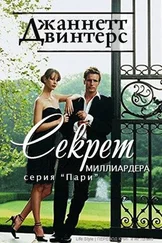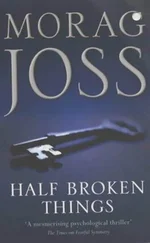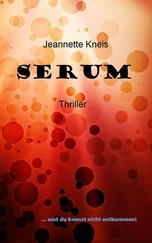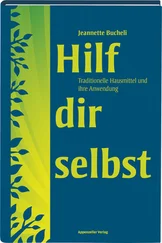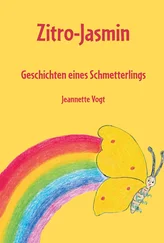On the day of the trial, we all got up early, and after breakfast we piled into the buckboard. When the circuit judge came to town, he held court in the lobby of the hotel, sitting in a wing-backed chair behind a small desk. The various plaintiffs and defendants leaned against the walls, waiting their turn.
The judge was a rail-thin man who wore a string tie and a jacket with a velvet collar, and he looked at you alertly under his bushy eyebrows, giving the impression that he didn’t tolerate fools. The bailiff called each case, and the judge listened to the two sides, then made his decision on the spot, brooking no argument.
Old Man Pucket was there, along with a couple of his sons. He was a stumpy little guy with skin the color of beef jerky and thumbnails he left untrimmed because he used them to pry things open. By way of dressing up for court, he had buttoned the top button of his frayed shirt.
Our case was finally called late in the morning, and I was kind of nervous as I stood to make the presentation Dad had cooked up for me.
“The history of the Great Dane is a proud and storied one,” I began, but the judge interrupted me.
“I don’t need a damned history lesson,” he said. “Just tell me why you’re here.”
I explained how Dad had imported the dogs from Sweden, planning to breed them as an investment, but they’d been found shot to death in the pecan grove near the fence line we shared with the Puckets.
“I’d like to call my first witness,” I said, but the judge cut me off again.
“Did you shoot those dogs?” he asked Old Man Pucket.
“Sure did.”
“Why?”
“They was on my property chasing my cattle, and from a distance I thought they was big ol’ wolves.”
Dad started arguing, but the judge shushed him.
“Sir, I can’t make out what you’re saying, and it don’t matter any-how,” the judge said. “You got no business keeping dogs bigger than wolves in cattle country.”
Turning to Old Man Pucket, he said, “But those were valuable animals, and he deserves some compensation for their loss. If you’re shy of cash, some livestock-horses or cattle-would do it”
And that was that.
A FEW DAYS AFTERthe trial, Old Man Pucket showed up at the ranch with a string of horses. Dad, still harboring a grudge, refused to leave the house, so I went out to meet Old Man Pucket, who was turning the horses into the corral.
“Just like the judge ordered, miss,” he said.
Even before Old Man Pucket had shot the dogs, we’d had our differences. Like most folks on the Rio Hondo, he did what he could to get by, and if that meant encroaching on someone else’s land or diverting a creek onto his property, he was prepared to do it. Dad called him a dirt farmer, but I thought of him as a scrapper who understood that sometimes, instead of asking another person’s permission, you were best off doing what needed to be done, defending it with bluster, and then apologizing later-if and when it came to that.
“Payment acknowledged,” I said, and shook his hand. Unlike Dad, I saw no point in carrying a grudge with a neighbor. You never knew when you might need someone’s help.
Old Man Pucket handed me a bill listing what he claimed was the value of each horse, then tipped his hat. “You’d make a mighty fine lawyer,” he said.
After Old Man Pucket left, Dad came out and looked at the horses. When I handed him the bill, he snorted in disgust. “None of those nags is worth twenty dollars,” he said.
It was true. Old Man Pucket’s valuations were wildly inflated. There were eight horses in all, stumpy, tough little mustangs, the kind that cowboys rounded up out in the wild and sat on for a day or two so they’d just barely accept a saddle. I figured that was what Old Man Pucket’s sons had done with these critters. None of the males was gelded. They were unshod, with chipped-up hooves in terrible need of trimming, and their manes and tails were matted with burrs. They were also scared, watching us nervously and clearly wondering what sort of dreadful end these humans had in store for them.
The problem with half-broke horses like these was that no one took the time to train them. Cowboys who could ride anything caught them and ran them on fear, spurring and quirting them too hard, taking pride in staying on no matter how desperately they bucked and fishtailed. Not properly broken, they were always scared and hated humans. A lot of times the cowboys released them once the roundup was over, but by then they’d lost some of the instincts that kept them alive out in the desert. They were, however, intelligent and had pluck, and if you broke them right, they made good horses.
One in particular caught my eye, a mare. I always liked mares. They weren’t as crazy as stallions but had more fire than your typical gelding. This one was a pinto, no bigger or smaller than the others, but she seemed less scared and was watching me intently, as if trying to figure me out. I cut her out from the herd, lassoed her, and then slowly walked up to her, following Dad’s rule around strange horses to keep your eyes on the ground so they won’t think you’re a predator.
She stood still, and when I reached her, again moving slowly, I raised my hand to the side of her head and scratched behind one ear. Then I brought my hand down the side of her face. She didn’t jerk back, like most horses would, and I knew she was something special, not the greatest beauty in the world-being a patchwork of white, brown, and black-but you could tell she could use her brain instead of reacting blindly, and I’d take smarts over looks in a horse any day.
“She’s yours, Counselor,” Dad said. “What are you going to name her?”
I looked at the mare. For the most part, us ranch folks liked to keep names simple. Cattle we never named at all, since it made no sense naming something you were going to eat or ship off to the slaughterhouse. As for other animals, if a cat had socks, we called it Socks; if a dog was red, we called it Red; if a horse had a blaze, we called it Blaze.
“I’ll call her Patches,” I said.
* * *
“I wanted you to finish your education,” Mom told me that night. “It was your father who had to buy those dogs, and now all we have are these useless range horses.”
I was trying hard not to see it that way. The money was gone, Sisters of Loretto was behind me, I had what I had, and I needed to make the most of it.
THE NEXT DAY WEgelded the new males, since, if they were going to be worth anything, they had to be turned into workhorses. It was nasty work, me, Dorothy, Zachary, and his wife, Ellie-who was not quite as big as her daughter but every bit as tough-each holding a rope tied to one of the horse’s legs after we’d caught him, knocked him down, and flipped him on his back. Apache tied the horse’s two hind legs to his belly, then Dad wrapped his head in a burlap sack and held it down while Apache knelt behind his rump, working first with the cleaver then the knife, blood spraying everywhere, the horse neighing hysterically while farting and kicking and twisting his back.
But it was over pretty quick. When we let the first horse free, he rose and staggered around drunkenly for a few steps. I herded him out of the corral, and after a moment he sighed and put his head into the tall grass to graze like nothing much had happened.
“Don’t even miss ’em,” Zachary said.
“We should do Old Man Pucket next,” Dad said.
That got a chuckle out of everyone.
I set about breaking Patches properly. That was one smart horse, and in no time she had truly accepted the bit and was moving off the leg at the slightest touch of my spur. After a few months of that, she even started cutting cattle. By fall, she’d become a true packer and was ready for roundup. I told Mom and Dad I wanted to go hire out at the big Franklin ranch across the valley, but they said they wouldn’t hear of it, and neither would the Franklins. So I started racing Patches in little amateur quarter-horse races, and from time to time we even returned with the purse.
Читать дальше

